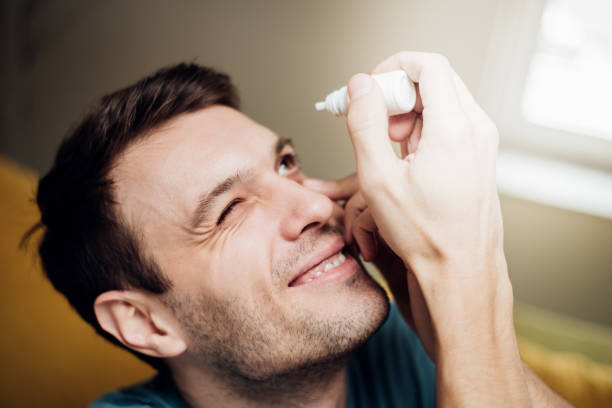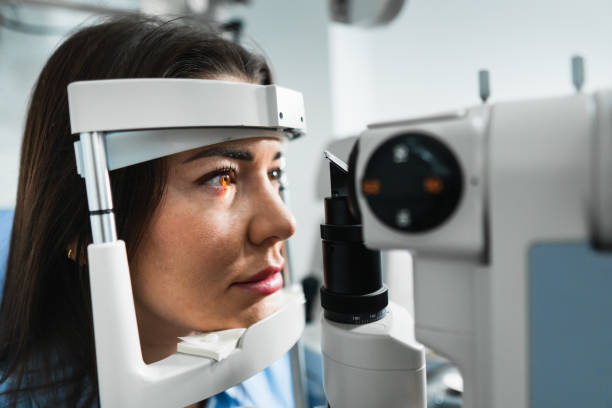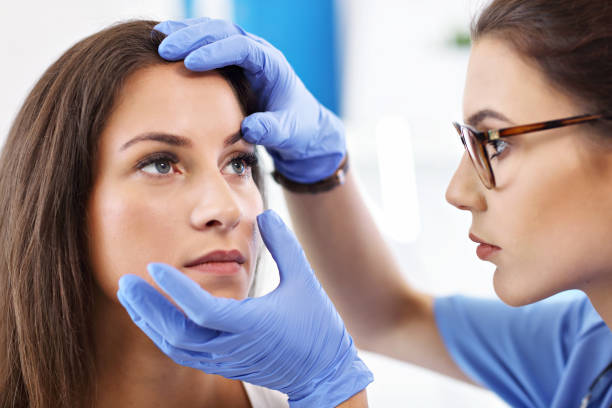Vision is one of our most important senses. We rely on it every day—to read, drive, work, and enjoy the world around us. Whether you wear glasses or have 20/20 vision, taking care of your eyes is essential. Eye health affects your quality of life and can change over time if not properly managed. Many people turn to natural remedies to help with common eye conditions, while others trust medical treatments from doctors.
Both options have their pros and cons. Some prefer herbal solutions and eye exercises, while others feel more confident using prescription drops or undergoing surgery. Knowing the difference can help you make the best choice for your eye health.
But which is better?
Let’s dive into both options so you can make the best choice for your eye health.
What Are Eye Conditions?
Eye conditions affect the way you see and how your eyes feel. They can cause blurry vision, dryness, redness, or discomfort. Some are mild, while others can lead to vision loss. Common issues include dry eyes, pink eye, and eye strain.
Common eye conditions include:
- Dry eyes
- Red or irritated eyes
- Cataracts
- Glaucoma
- Macular degeneration
- Eye strain or fatigue
- Allergies
Each of these problems can be treated in different ways—naturally or medically.

Natural Remedies for Eye Conditions
Natural remedies are treatments you can try at home using herbs, lifestyle changes, or nutrition. These methods aim to support your body’s healing process in a gentle way. Many people prefer them because they are non-invasive and often cost less.
For example, using warm compresses for dry eyes or eating foods rich in vitamins A and C can support eye health. Some also use herbal teas, eye drops made from natural ingredients, or eye exercises to relieve strain. While results may vary, natural remedies are popular for those looking for safer, more affordable options.
1. Warm Compress for Dry Eyes
Placing a warm, damp cloth over your eyes can help soothe dry or tired eyes. This simple method is often called a warm compress. It increases oil flow from the eyelid glands, improving moisture. The warmth helps unclog blocked glands, which can reduce dryness, irritation, and redness. It also relaxes the eye muscles and boosts blood circulation around the eyes.
How to use:
- Soak a clean cloth in warm water
- Wring it out
- Place over closed eyes for 5–10 minutes
2. Cucumber Slices for Puffy Eyes
Cucumbers are rich in water and antioxidants. They contain vitamin C and caffeic acid, which help calm the skin and fight inflammation. Putting slices over your eyes may reduce swelling and soothe irritation. The cool temperature of the cucumber helps shrink puffy tissue, especially under the eyes. This home remedy is often used to relax tired eyes and refresh the skin around them. It’s a quick, natural way to ease discomfort and improve appearance.
3. Omega-3 Fatty Acids
Found in fish like salmon or in flaxseed, omega-3s may help reduce dry eye symptoms and support eye health. These healthy fats play a key role in keeping your eyes moist and reducing inflammation. Omega-3s may help improve the function of the tear glands, which keeps your eyes from feeling dry or itchy.
Sources of Omega-3s:
- Salmon
- Flaxseeds
- Chia seeds
- Fish oil supplements
Adding them to your diet may protect your eyes over time and support overall vision health.
4. Eye Exercises
Simple eye exercises may ease eye strain from too much screen time. Staring at phones, computers, or tablets for long periods can make your eyes feel tired or dry. Try the 20-20-20 rule: It’s an easy way to give your eyes a break. Every 20 minutes, look at something 20 feet away for 20 seconds.
This helps relax the eye muscles and reduce tension. You can also blink more often and roll your eyes gently in circles to keep them moist and flexible. Doing these exercises daily may improve comfort and prevent eye fatigue.
5. Herbal Remedies
Some herbs like bilberry and ginkgo biloba are said to improve blood flow to the eyes. Better circulation can help bring more oxygen and nutrients to the eye tissues. Bilberry is rich in antioxidants, which may protect the eyes from damage and support night vision.
Ginkgo biloba is believed to increase blood flow and may help with eye conditions linked to poor circulation, like glaucoma. While more research is needed, these herbs are often used in natural eye health supplements and teas.
⚠️ Note: Herbal supplements can interact with medications. Always check with a doctor before using them.
Pros of Natural Remedies
- Usually low cost
- Easy to do at home
- Fewer side effects
- Supports overall wellness
Cons of Natural Remedies
- Lack of strong scientific evidence
- May take longer to see results
- Not effective for serious conditions
- Risk of delaying needed medical care

Medical Treatments for Eye Conditions
Medical treatments involve care from eye doctors (optometrists or ophthalmologists). These can include prescription drops, surgeries, or other procedures.
1. Prescription Eye Drops
Used to treat glaucoma, infections, and dry eyes, prescription drops are tailored to your specific condition. These eye drops are made to target the root cause of the problem, whether it’s lowering eye pressure, fighting bacteria, or adding moisture. Doctors may prescribe different types depending on your symptoms and diagnosis.
For example, glaucoma drops help reduce pressure inside the eye, while antibiotic drops treat infections like pink eye. Lubricating drops for dry eyes can offer long-term relief when over-the-counter options are not enough. Following your doctor’s directions is key to getting the best results.
2. Laser Surgery
Doctors use lasers to treat issues like cataracts, glaucoma, or retinal tears. Laser procedures are precise and can target damaged eye tissue without harming nearby areas. It’s often safe, fast, and effective. For example, laser surgery can remove cloudy lenses in cataracts or lower pressure in glaucoma by improving fluid drainage.
In cases of retinal tears, lasers help seal the tear to prevent further damage. These treatments are usually done in an outpatient setting and require little recovery time, making them a popular medical option for serious eye problems.
More from Mayo Clinic on laser eye surgery
3. Medications
For infections or inflammation, doctors may prescribe antibiotics or anti-inflammatory drugs. These medicines help fight harmful bacteria and reduce swelling or pain in the eyes. Antibiotic eye drops or ointments are often used for conditions like pink eye or styes.
Anti-inflammatory drugs, such as steroid drops, may be given to calm irritation caused by allergies, injury, or surgery. Taking the right medicine at the right time can speed up healing and prevent problems from getting worse. Always follow your doctor’s instructions for best results.
4. Cataract Surgery
When a cataract clouds the lens of your eye, surgery replaces it with a clear artificial lens. Cataracts can make vision blurry, dull, or dim, and may affect daily tasks like reading or driving. This is one of the most common and successful procedures in the world.
During cataract surgery, the cloudy lens is removed and replaced with a clear plastic lens called an intraocular lens (IOL). The procedure usually takes less than an hour and is done under local anesthesia. Most people see better within a few days and recover quickly with little to no pain.
Pros of Medical Treatments
- Backed by science and research
- Tailored to your condition
- Can prevent or reverse vision loss
- Fast results in many cases
Cons of Medical Treatments
- Higher cost
- May have side effects or risks
- Requires doctor visits
- Not all are covered by insurance
When to Use Natural Remedies
Natural remedies may work well for:
- Mild dry eyes
- Eye strain
- Puffy or tired eyes
- Preventive care
They are not meant to replace medical care, especially for serious conditions like glaucoma or macular degeneration.
When to See a Doctor
Seek medical help if you:
- Have sudden vision loss
- See flashing lights or floaters
- Feel eye pain
- Have a known eye disease like glaucoma
Early treatment can protect your sight.
Visit the National Eye Institute for more info

Can You Combine Both?
Yes! In many cases, natural remedies and medical treatments can work together. For example:
- Use warm compresses for dry eyes while using prescription drops
- Take omega-3 supplements along with medical advice
- Do eye exercises after a doctor’s check-up for eye strain
Just make sure your doctor knows about all supplements or remedies you use.
Tips to Keep Your Eyes Healthy
Whether you prefer natural or medical care, these tips will help:
- Eat a diet rich in leafy greens and healthy fats
- Wear sunglasses outdoors
- Limit screen time and take breaks
- Avoid smoking
- Get regular eye checkups
Final Thoughts: Which Is Better?
There’s no one-size-fits-all answer. Every person’s eyes are different, and what works for one may not work for another. Natural remedies can support your eye health and ease mild symptoms. They may help with dryness, irritation, or eye strain, especially when used as part of a healthy lifestyle.
But for serious issues, medical treatments are often necessary. Conditions like glaucoma, cataracts, or infections usually require care from an eye doctor. A proper diagnosis and the right treatment plan can help protect your vision and prevent long-term damage.
The best approach? Stay informed, act early, and talk to your eye doctor.

